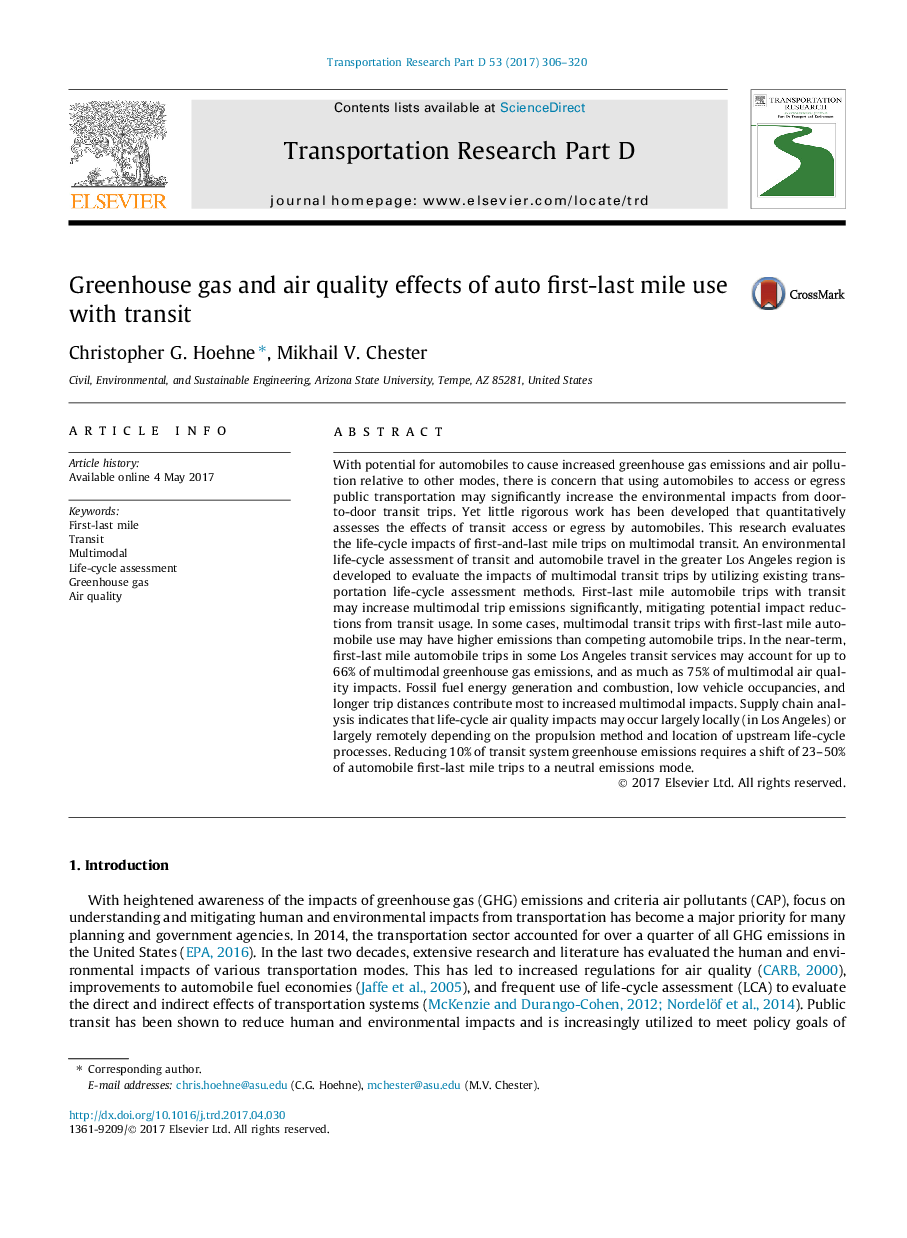| کد مقاله | کد نشریه | سال انتشار | مقاله انگلیسی | نسخه تمام متن |
|---|---|---|---|---|
| 5119434 | 1485871 | 2017 | 15 صفحه PDF | دانلود رایگان |
- Auto access or egress with transit may have higher emissions than unimodal auto.
- Auto access or egress can account for up to 75% of multimodal trip impacts in LA.
- Air quality impact assessment in transportation should include spatial analysis.
- LA transit system GHG reductions of 1% require 2-5% shifts away from auto access.
With potential for automobiles to cause increased greenhouse gas emissions and air pollution relative to other modes, there is concern that using automobiles to access or egress public transportation may significantly increase the environmental impacts from door-to-door transit trips. Yet little rigorous work has been developed that quantitatively assesses the effects of transit access or egress by automobiles. This research evaluates the life-cycle impacts of first-and-last mile trips on multimodal transit. An environmental life-cycle assessment of transit and automobile travel in the greater Los Angeles region is developed to evaluate the impacts of multimodal transit trips by utilizing existing transportation life-cycle assessment methods. First-last mile automobile trips with transit may increase multimodal trip emissions significantly, mitigating potential impact reductions from transit usage. In some cases, multimodal transit trips with first-last mile automobile use may have higher emissions than competing automobile trips. In the near-term, first-last mile automobile trips in some Los Angeles transit services may account for up to 66% of multimodal greenhouse gas emissions, and as much as 75% of multimodal air quality impacts. Fossil fuel energy generation and combustion, low vehicle occupancies, and longer trip distances contribute most to increased multimodal impacts. Supply chain analysis indicates that life-cycle air quality impacts may occur largely locally (in Los Angeles) or largely remotely depending on the propulsion method and location of upstream life-cycle processes. Reducing 10% of transit system greenhouse emissions requires a shift of 23-50% of automobile first-last mile trips to a neutral emissions mode.
Journal: Transportation Research Part D: Transport and Environment - Volume 53, June 2017, Pages 306-320
